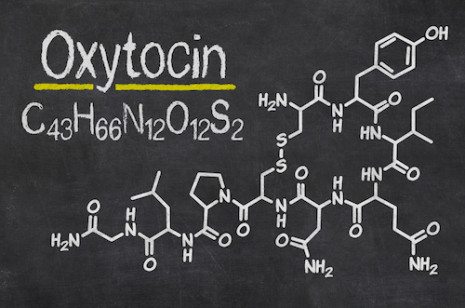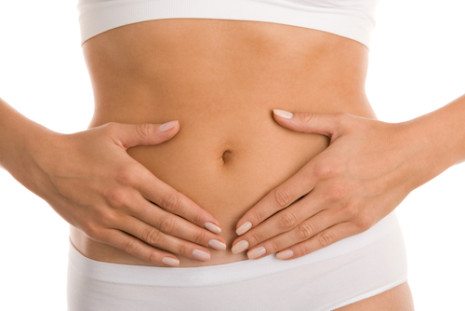If you’ve been following along with me for awhile, you know I’ve talked quite a bit about what you can do to help manage cravings. But while I’ve given you plenty of strategies for stopping cravings in their tracks, I want to try something different today…
Today, I want to help you understand one potential cause of your cravings. This is in my book, The Beauty Detox Power, and as you’ll see, it’s super useful!
As I note inside The Beauty Detox Power, cravings stem from a number of different sources. But there’s one trigger that’s surprisingly prevalent, and I bet it’s not one that you’re thinking of…
It’s not a hormonal imbalance… It’s not “that time of the month”…
It’s a Lack of Affection!
Most of us think of affection as a nicety, something we’re happy to enjoy, but don’t worry too much about missing. But based on my research and my work in nutrition, I’ve seen that there’s actually much more to it.
Affection is a vital part of being human. In fact, all mammals need affection, and, as you’ll see, the act of giving and receiving sufficient nurturing can have a major impact on your health and beauty.
A lack of affection can trigger cravings and contributes to poor health, but it isn’t just upsetting. The an absence of nurturing can actually be fatal.
The Science of Affection
We’ve known for a while how important touch and affection. In fact, some scientists believe that it’s as essential as eating or breathing.
Take, for example, a 1944 study summarized by Talia Joubert of Brigidine College. In the experiment, one group of infants was raised in nurturing, familial environments, while another was cared for by clinicians who met their basic physiological needs and nothing else.
Researchers in this second experimental group didn’t touch the babies (beyond what was necessary for their basic care), didn’t make eye contact and didn’t engage them in any way.
After just four months, the experiment had to be shut down early, as some of the no-nurturing babies actually died from the absence of affection. They were physically healthy, but their unmet needs for nurturing won out!
On the other hand, babies who receive plenty of affection during their formative months and years develop into more emotionally resilient adults.
In a study published in 2010, Duke University researchers found that babies who received high levels of maternal affection at age 8 months were less likely to experience distress as adults, particularly in the case of anxiety.
The Benefits of Affection
So what does all of this have to do with you and your health? You aren’t a baby, and there’s nothing you can do now to change how your parents cared for you when you were young.
Well, let me ask you a question… Do you believe that there’s a connection between what you eat and how you feel about your body? Of course, the answer is YES, YES, YES!
The thing is, affection isn’t just good for the receiver – it’s also good for YOU. We tend to think of affection as benefiting the recipients, but being affectionate has a number of benefits to offer on its own, such as reducing stress and anxiety.
According to Kory Floyd, an associate professor at Arizona State University, whose work focuses on affection: “Being affectionate is good for you. Affection can be a simple, non-pharmaceutical, cheap way to reduce stress.” When we’re affectionate, we trigger the production of a hormone known as oxytocin.
This hormone is often referred to as the “love hormone,” and when it’s released through physical contact, intimacy, mother-child bonding and other pair-bonding behaviors, it makes us feel calmer, more connected and more satisfied with our relationships.
Affection’s Effect on Your Digestive Health
But that’s not all oxytocin does…emerging science suggests that this hormone can actually help “cool” gut inflammation, helping your “second brain” – aka, your gut – function better.
According to Dr. Michael Gershon, chairman of the department of anatomy and cell biology at Columbia University, our digestive systems contain their own networks of nerves, just like the ones found in our brains.
And just like our brains, these “enteric nerve networks,” or, networks of digestive nerves, use neurotransmitter hormones like oxytocin and serotonin to control various behaviors and biological responses.
As an example, did you know that the cells found in the intestinal wall produce roughly 95% of the body’s serotonin? When we have adequate levels of serotonin in our bodies, we feel happy and healthy. When we don’t, we feel worse, as a number of mental health disorders appear to be linked to an inability to either produce or appropriately process serotonin.
But while the mental health side of serotonin has been extensively explored, only recently have scientists begun to recognize its potential role in physical health. In a 2010 study, Dr. Gershon applied his knowledge of serotonin and its impact on intestinal nerves to rats who suffered from chronic colitis.
Through the administration of doses of oxytocin and serotonin, he was able to significantly diminish their intestinal inflammatory responses.
Interestingly, the reverse is also true. When you work on healing your gut, especially through fermented foods and Probiotics, you’re better able to produce and feel hormones like oxytocin and serotonin that elevate your mood and health.
What This Means for You and Your Gut
We can look at these finding in two ways. First, if we know from discussions earlier in this article, that being affectionate promotes the production of oxytocin – and we also know that oxytocin can help improve digestion – then it stands to reason that being more affectionate throughout your daily life can actually help heal your gut and promote better overall health.
That’s pretty powerful stuff, but think about the reverse of this statement as well. Since oxytocin and gut health are so closely related, repairing your digestive system, for example, by incorporating more fermented foods and probiotics into your diet, could lead to the production of more oxytocin.
This, in turn, will improve your mood and help you feel happier, healthier and more beautiful overall!
Incorporating Affection Into Your Life
When I write blog posts, I try to leave you with action steps that you can take away and incorporate into your life, and I’ve never had as much fun with that as I have putting together the following recommendations!
Try to increase your oxytocin levels and eliminate cravings naturally:
- Make time for cuddling. That’s right, I’m actually recommending that you set aside time in your day for regular cuddle sessions! Cuddling isn’t just cute, it’s a powerful trigger of oxytocin production. Dr. Renee Horowitz of the Center for Sexual Wellness in Farmington Hills, MI, agrees with me, saying “Cuddling, holding, and sexual play releases chemicals, like oxytocin, in the brain that create a sense of well-being and happiness.”
- Reach out and hold hands. Don’t have time for a full-on snuggle? You may be able to enjoy many of the same oxytocin-boosting benefits of cuddling just by holding hands with your loved ones. If you’ve got a shy partner who doesn’t care for public displays of affection like hand-holding, these health benefits might just change his or her mind!
- Settle in for a chat. Here’s a surprising one for you: you may not even need to physically touch your partner to experience the better health associated with affectionate behaviors. Simply being near your partner can lower blood pressure – an effect that scientists say persists even if you aren’t happy with your partner and that doesn’t appear in the same way when you spend time with friends or members of your extended family.
- Get a little more intimate… I probably don’t need to do much convincing here, but kissing and physical intimacy aren’t just super fun – they also have a positive effect on your oxytocin and cortisol (a stress-related hormone) levels [10]. As a result of being more affectionate, you’ll enjoy better sleep, improved immune responses to the common cold and even cleaner teeth, so go ahead and get busy!
It’s clear that affection isn’t just a nice thing to have, it’s something we need in order to live our healthiest, most authentic lives.
When we aren’t giving or receiving enough nurturing, our physical and emotional health suffers. And when we don’t feel right, we seek out other ways to make ourselves feel better – including food.
So you see, it might be a lack of affection that’s contributing to your cravings. And cravings are something I discuss extensively in my book, The Beauty Detox Power.
Cravings are real, and they can be scary… but they don’t have to be! I can’t wait to share more about this book with you, including a HUGE surprise we have coming soon.
It’s a complete “package” that will support you in ALL ways, mentally, emotionally, physically and spiritually.
In Love and Health,
Kimberly















Seriously interesting! I love how the more advanced research becomes, the more it confirms that it is the simple, lifestyle-bases choices that leave the most remarkable print on our health
Thank you for great info. My fiance says that i express my love to much, so i’ve just sent him this article ;D I’ve always felt it, and now it’s great to know how it works and that it’s real :)
That is amazing Renata! I am so happy you were able to share this with your fiance!
Wow… what a great article… resonates with me right now, thank you!!!
This is so true. I intuited this in my recent latter adult life. Being single doesn’t help!
Thank you for this Kimberly, absolutely beautiful and SO important.
this totally makes sense and i now know why i always have a yearning to hug people around me but i live in a society that is more conservative so people dont really hug one another but now i can explain why i love affection so much!!
Thank you for commenting Carly. Keep practicing self love and stay close with your family and friends as a big hug can really do the trick if you are having a bad day!
Hi to every one, it’s in fact a good for me to visit this site, it
contains valuable Information.
Thanks so much! ;)
I attended the session where Harlow presented the study. He closed with: “A little love goes a long way”. neat what you are into.
Hi Paul! That is great – I love that sentiment! Thanks for tuning in! xx